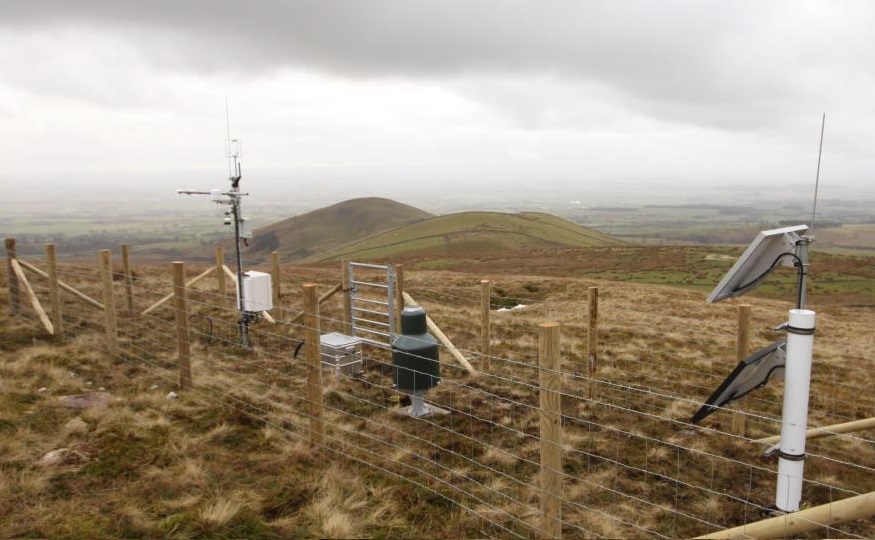
Grasslands around the UK are being fitted with 'intergalactic cosmic rays' to help measure soil moisture levels.
The project launched in 2013 and now includes 40 sites from Scotland to Cornwall with grassland around Riseholme campus in the University of Lincoln being the latest to be added to the network.
It will provide near-real time soil moisture data for use in a variety of applications including farming, water resources, flood forecasting and land-surface modelling.
Each station is equipped with an instrument that uses cosmic-rays to sense soil moisture over an area of about 20 hectares (about 50 acres).
Data from the network have the potential to transform the way that we understand and model the natural environment.
Director of the Lincoln Institute for for Agri-food Technology, Simon Pearson, told Lincolnshire Live: "We are extremely proud and excited to be part of the national network of COSMOS-UK soil moisture monitoring sites. Lincolnshire is responsible for 10 per cent of all agricultural production in England, so it is right that we contribute to this important national project.
"Data derived from these instruments at Riseholme and elsewhere provide near real-time soil moisture data in a way that could transform farming, flood planning and environmental management in the near future. This has the potential to bring great benefits for our region's farmers.
"Already researchers are examining how this wealth of data can be used to improve irrigation, manage flood risk and make more accurate crop yield forecasts."
Step change in fundamental science
It is anticipated that publically accessible real-time data will empower all kinds of applied environmental research: more accurate meteorological models; better water resource information of current and future conditions; increased resilience to natural hazards, for example by earlier flood warnings; improved water use efficiency in crop production and give better crop yield forecasts.
"It will enable a step change in fundamental science, particularly, meteorological predictability associated with soil moisture, better models of greenhouse gas emissions from soils.
"COSMOS-UK will allow open-up other environmental science areas where UK soil moisture data has not been available before, such as applications in ecosystem services," the project said.
"The use of new technology is exciting and potentially rewarding but not without its challenges.
"There is research to do in interpreting the measurements obtained from the COSMOS-UK stations, e.g. adjusting raw measurements to give a reliable value of soil moisture, and relating to measurements derived from other techniques."
